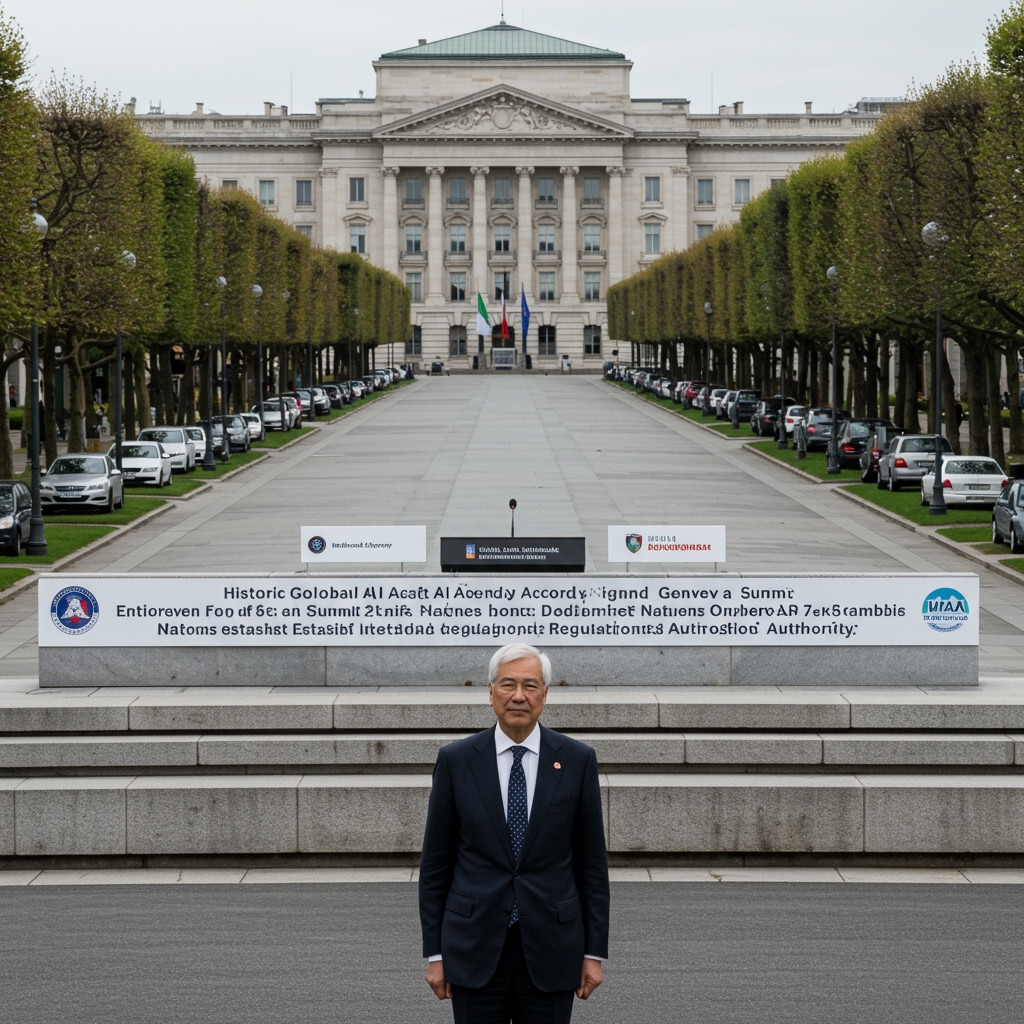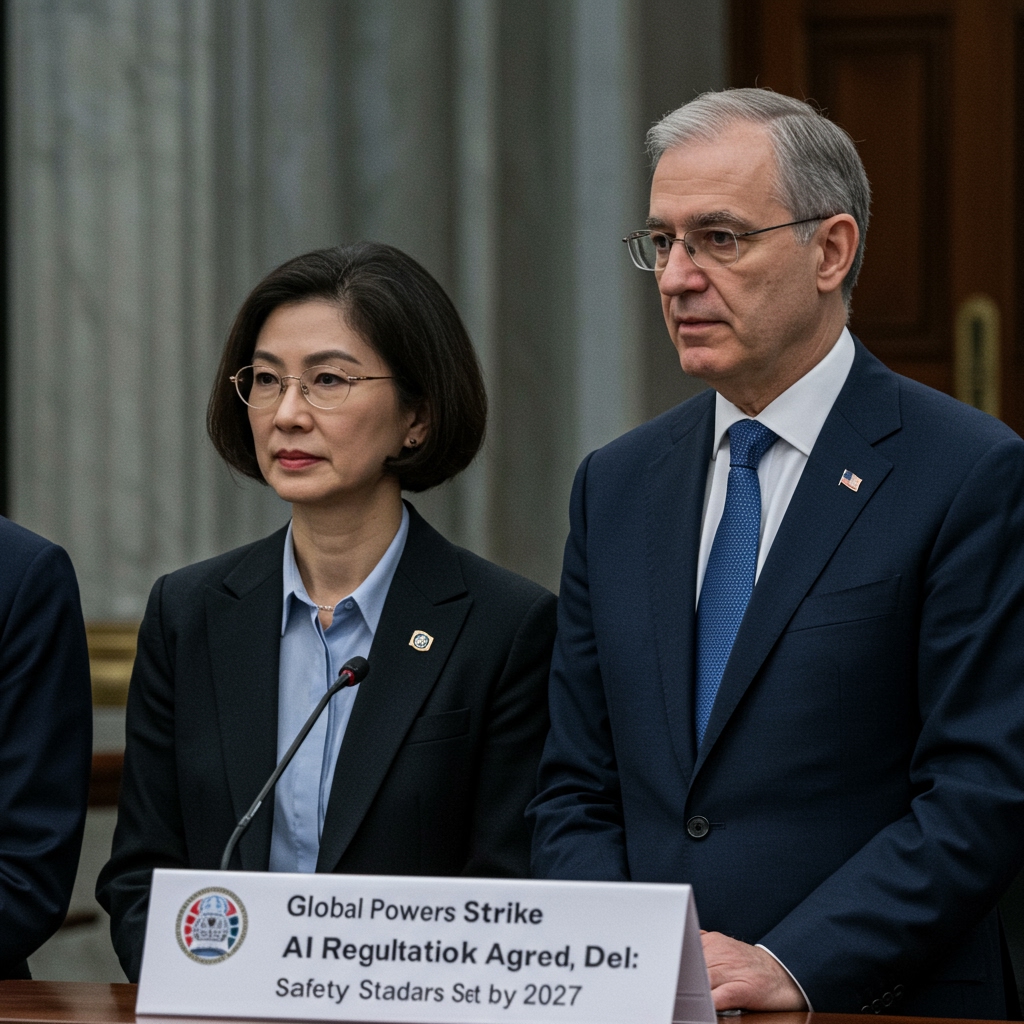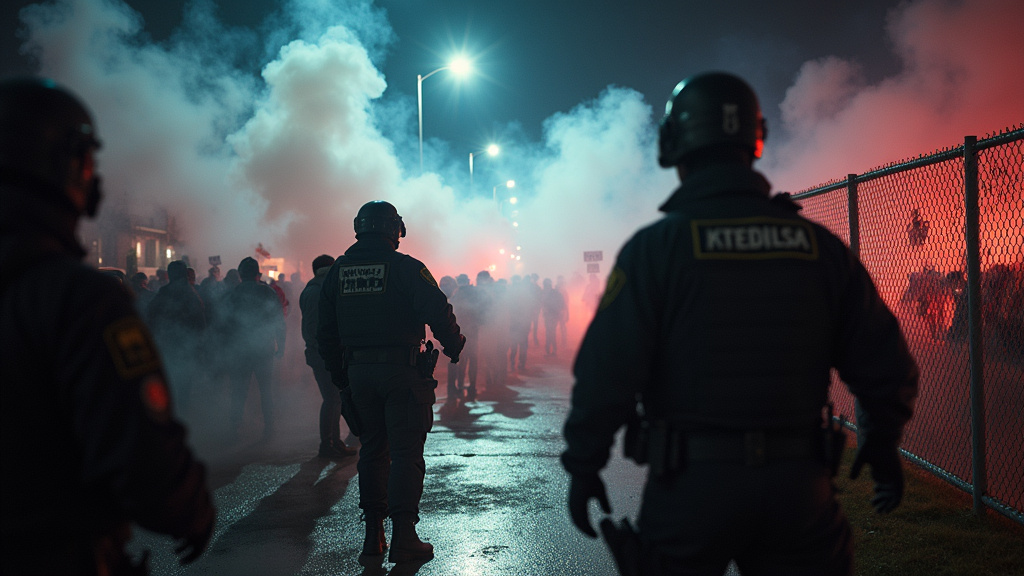Geneva, Switzerland – June 5, 2025 – After a week of intense negotiations and collaborative sessions, representatives from over 50 nations, crucially including all G20 members, concluded a historic summit today by signing a landmark accord on global artificial intelligence safety standards. The agreement, forged through extensive diplomatic efforts, represents an unprecedented step towards unified international governance of advanced AI technologies.
The week-long summit, held in Geneva, brought together heads of state, technology ministers, leading AI researchers, and civil society representatives from around the world. Discussions centered on the rapidly accelerating capabilities of artificial intelligence and the multifaceted risks associated with its development and deployment, ranging from ethical dilemmas and bias to potential existential threats posed by highly advanced systems.
Establishment of the International AI Regulation Authority (IARA)
A central pillar of the newly signed accord is the establishment of the International AI Regulation Authority (IARA). This groundbreaking international body will be headquartered in Vienna, Austria. The IARA is explicitly tasked with the critical mission of monitoring advanced AI development on a global scale and implementing mandatory risk assessments for AI systems that exceed specific, yet-to-be-fully-defined computational thresholds. These mandatory assessments are slated to be in effect by 2027.
The creation of the IARA signals a collective recognition among participating nations that national-level regulations, while necessary, are insufficient to address the inherently borderless nature of advanced AI development and its potential impacts. The Authority is envisioned as a hub for expertise, data sharing, and coordinated action, aiming to build a common understanding of AI risks and best practices across diverse regulatory landscapes.
Key Provisions of the Accord
The accord outlines several key provisions designed to create a framework for responsible AI development and deployment. Among these are the development and implementation of standardized testing protocols for advanced AI systems. These protocols are intended to ensure that systems can be rigorously evaluated for safety, robustness, and adherence to ethical guidelines before being deployed. The lack of globally recognized testing standards has been a significant challenge in assessing AI capabilities and potential risks, and this provision aims to address that gap.
Another crucial element is the commitment to shared data on AI-related incidents. Nations have agreed to contribute information regarding accidents, malfunctions, or unintended consequences stemming from AI systems. This shared repository of data will be managed by the IARA and is expected to provide invaluable insights into real-world AI risks, enabling faster identification of vulnerabilities and the development of mitigation strategies. This collaborative approach is seen as essential for learning from incidents and preventing their recurrence globally.
Furthermore, the accord establishes robust mechanisms for international cooperation on AI governance challenges. This includes provisions for joint research initiatives, capacity building in developing nations, and coordinated responses to emerging AI risks. The participating countries have pledged to work together to navigate the complex ethical, social, and economic implications of AI, fostering a global dialogue that transcends national interests.
Balancing Innovation with Risk Mitigation
A core objective articulated in the accord is the critical balance between fostering innovation in artificial intelligence and effectively mitigating the potential existential risks associated with its most advanced forms. Leaders emphasized that the aim is not to stifle progress but to guide it responsibly, ensuring that powerful AI tools are developed and used for the benefit of humanity.
The agreement also places significant emphasis on ensuring the ethical deployment of AI across various sectors worldwide. This includes considerations of fairness, transparency, accountability, and privacy. While the accord primarily focuses on safety and risk assessment for advanced systems, the preamble and several clauses underscore the importance of ethical principles in the broader AI ecosystem.
The signing of this accord in Geneva marks a pivotal moment in the global effort to govern artificial intelligence. It signals a collective commitment from the world’s leading nations to work together to address one of the most complex technological and societal challenges of our time. The coming years will test the effectiveness of the IARA and the resolve of signatory nations to implement the accord’s provisions, but the foundation for a globally coordinated approach to AI safety has now been firmly laid.













